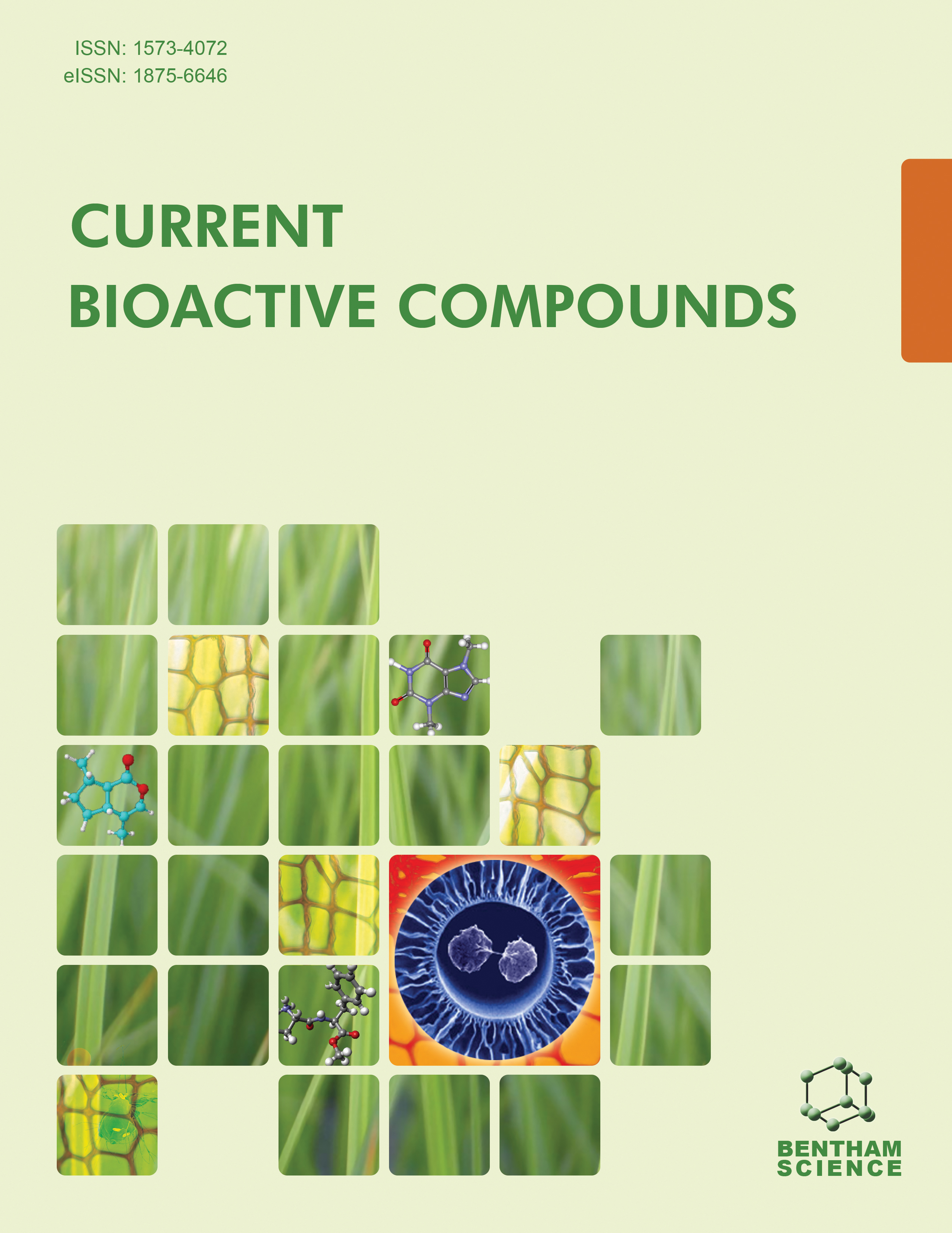-
s Antibacterial, Anti-Inflammatory, and Antidiabetic Studies of the Amines Isolated from the Philippine Marine Sponge Desmacella sp
- Source: Current Bioactive Compounds, Volume 19, Issue 1, Jan 2023, p. 52 - 61
-
- 01 Jan 2023
Abstract
Aims: The study aimed to isolate and elucidate the structure of pure compounds from the polar extract of the marine sponge Desmacella sp. and explore their therapeutic potential. Background: Only a few marine organisms and their associated microorganisms collected from various parts of the Philippines have been documented and investigated in terms of their potential as sources of bioactive secondary metabolites. The sponge Desmacella sp. was collected off the coast of Agusan del Norte, Mindanao, Philippines, for the purpose of isolating compounds with medicinal prospects. Objective: The objective of the study was to explore the antibacterial, anti-inflammatory, and antidiabetic potentials of the pure isolates from the polar extract of the marine sponge Desmacella sp. Methods: The polar extract of the marine sponge Desmacella sp. from Agusan del Norte, Philippines, was subjected to purification using gravity column and medium pressure liquid chromatographic methods with TLC profiling as a guide. Pure isolates were obtained and subjected to NMR spectroscopy and mass spectrometry for structure elucidation, and the structures were confirmed by comparing the data with the literature. The pure compounds were explored for their antibacterial potential against B. subtilis BIOTECH 1679 and P. aeruginosa BIOTECH 1335 using a microplatebased antibacterial assay with resazurin indicator for the cell growth and ciprofloxacin as a positive control. Their anti-inflammatory potentials were determined using membrane stabilization and protein denaturation assays and were compared with the anti-inflammatory drug diclofenac and their antidiabetic potential by measuring their ability of inhibiting starch-hydrolyzing enzyme α-amylase. Results: The polar extract of the marine sponge Desmacella sp. from Agusan del Norte, Philippines, afforded three known compounds, namely, aaptamine, isopentylamine, and tyramine. This is the first report on the isolation of aaptamine, isopentylamine, and tyramine from the marine sponge genus Desmacella. The compounds aaptamine and isopentylamine exhibited antibacterial activity against B. subtilis, while tyramine and isopentylamine exhibited antibacterial activity against P. aeruginosa. These compounds showed the ability to inhibit heat-induced protein denaturation and effectively inhibited the erythrocytes' heat-induced hemolysis, which described in vitro antiinflammatory activity. These compounds were also evaluated for in vitro antidiabetic properties and showed their ability to inhibit the alpha-amylase enzyme activity of starch. Conclusion: Three known amines, namely, aaptamine, isopentylamine, and tyramine were isolated from the polar extract of the marine sponge Desmacella sp. collected off Mindanao coasts. Aaptamine and isopentylamine exhibited antibacterial properties against B. subtilis, while isopentylamine and tyramine exhibited antibacterial activity against P. aeruginosa. The anti-inflammatory potentials of aaptamine, isopentylamine, and tyramine were exhibited clearly in the membrane stabilization and protein denaturation assays and were compared with the anti-inflammatory drug diclofenac. Aaptamine, isopentylamine, and tyramine exhibited hypoglycemic properties and were compared with the antidiabetic drug acarbose in the inhibition of starch-hydrolyzing enzyme α-amylase assay.


